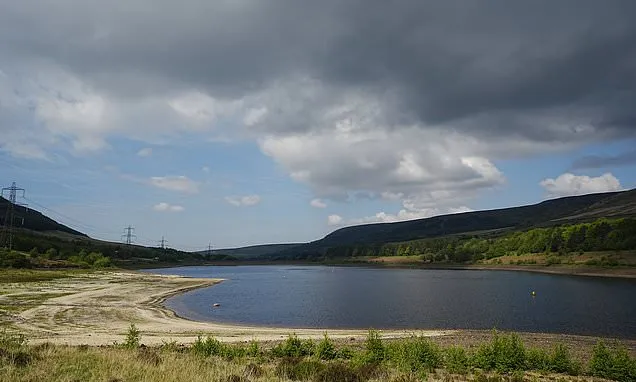The former chief executive of Wessex Water said investors stripping cash from water firms was "criminal" at a conference debating the future of the sector.
Colin Skellett, who helmed the south-west England utility from 1988 to 2024, argued against nationalising water companies because of the industry requiring "continuous levels of investment".
He spoke as campaigners and experts urged the Government to explore public ownership during the UK River Summit in south London on Tuesday.
Ministers have promised a "fundamental reset" following years of companies paying out large dividends that diverted money away from infrastructure investment and maintenance, leading to sewage pollution and rising bills.
However, they have ruled out nationalisation and instead are focusing efforts on tightening rules, increasing investment and strengthening penalties within the current system of regulated private firms.
Speaking at the summit, Mr Skellett said he has seen the industry change since he joined it in 1974, saying it is one that "requires continuous levels of investment".
"The problem with public ownership is the Government always has other things it wants to spend its money on," the former Wessex boss said.
He argued that privatisation helped to get debt off the Government's balance sheet and boost investment but this changed when the "wrong sort of investors" began stripping cash out of companies through high dividends.
"It was bloody criminal what happened - the amount of money that was stripped out of not just Thames (Water), but a number of companies," he said.
"So we need that to change (in) the system. It's not so much about ownership, it's more about how you regulate it, how you control it, and how you make sure the investment continues."
It came as the Environment Department (Defra) announced an increase in funding for the Environment Agency from £114 million in 2022/23 to £189 million this current financial year, a sum which is understood to have been welcomed by the regulator.
Ministers are also currently awaiting the publication of the independent water commission's final report and recommendations, led by Sir Jon Cunliffe, which is expected in two weeks.
The review is not exploring nationalisation as an option, with campaigners at the summit indicating they will continue to campaign on the issue following its publication.
Ewan McGaughey, professor of law at King's College London, argued that the Government should take away licences from failing water companies and transition them into a long-term sustainable model of public ownership, calling privatisation in England a "broken model".
Mr McGaughey said 90% of countries and cities around the world have water in public ownership and cited examples such as Berlin and Paris, which brought their sectors back into public ownership in 2013 and 2009 respectively after the privatised model failed.
"Bills go down. Water quality goes up. It's actually not really that controversial. You just have to look at the evidence, and you can see that public ownership works better," he said.
Cat Hobbs, founder and We Own It, which campaigns for public ownership of public services, said the Government's decision to not allow the independent review to explore nationalisation is a "scandal".
"That has to change. They still have time to change it," she said.
And Ashley Smith, founder of Windrush Against Sewage Pollution (WASP), called privatisation a "ludicrous scam", arguing that there has never been a single year since the firms were privatised when shareholders put in more money than they took out of the firms.
Later, water minister Emma Hardy defended the Government's approach to reforming the sector.
"There's been a lack of sustained investment in the industry for an incredibly long time," she told the summit.
"We have taken immediate action, but there are some things that, of course, are going to take longer to fix.
"We want to listen to you and we can have difference of opinion - that is absolutely fine but I want to make sure that we try and bring as many people with us as possible because fundamentally we're all trying to get to the same place and that place is an effective water system with reduced pollution which is better for customers and better for the environment."
Ms Hardy called the Cunliffe report a "once-in-a-generation opportunity to modernise (the sector)" and said the Government will give a top-level reaction to the review before looking at any potential further legislation.
